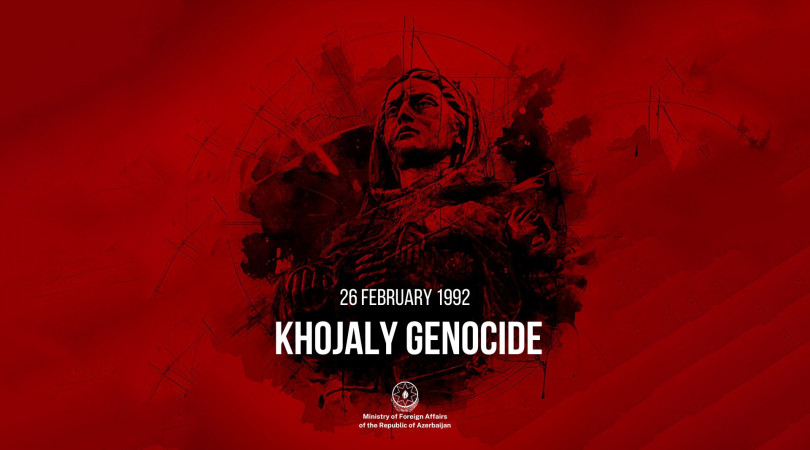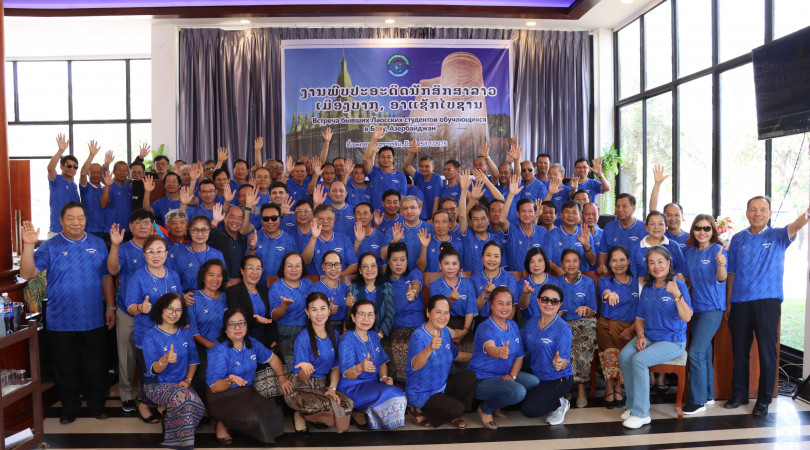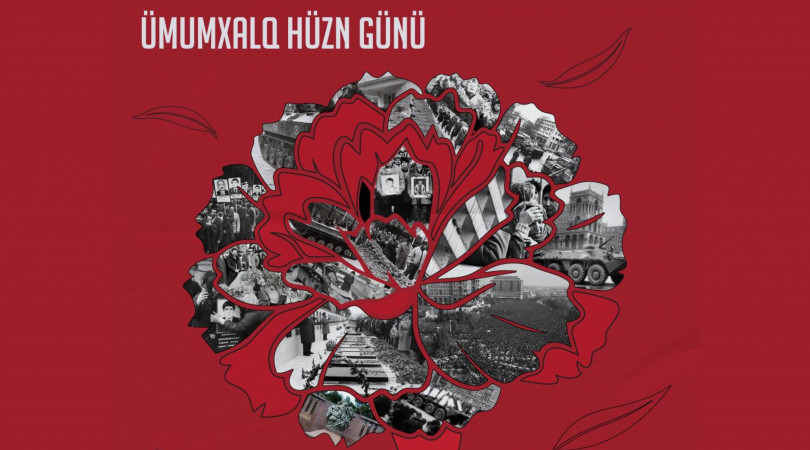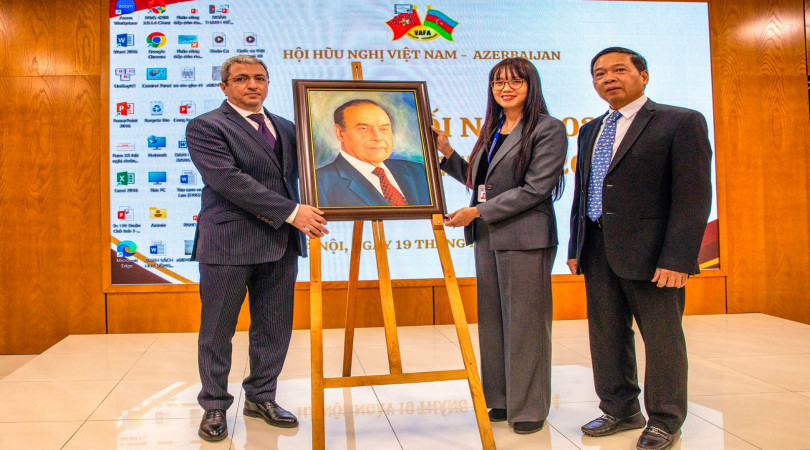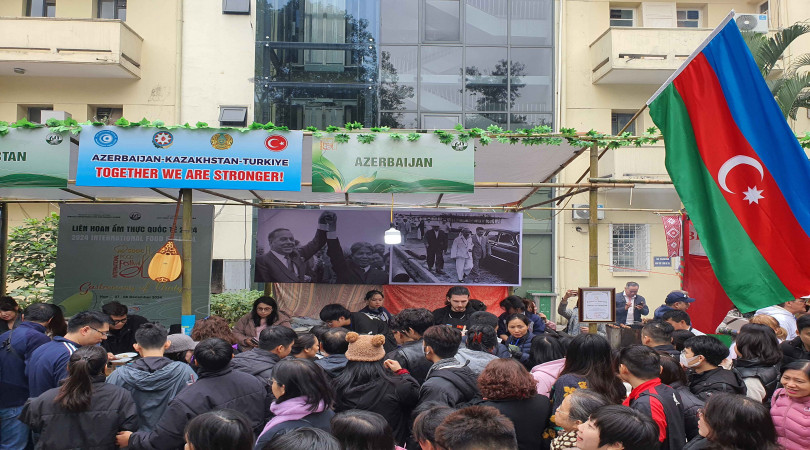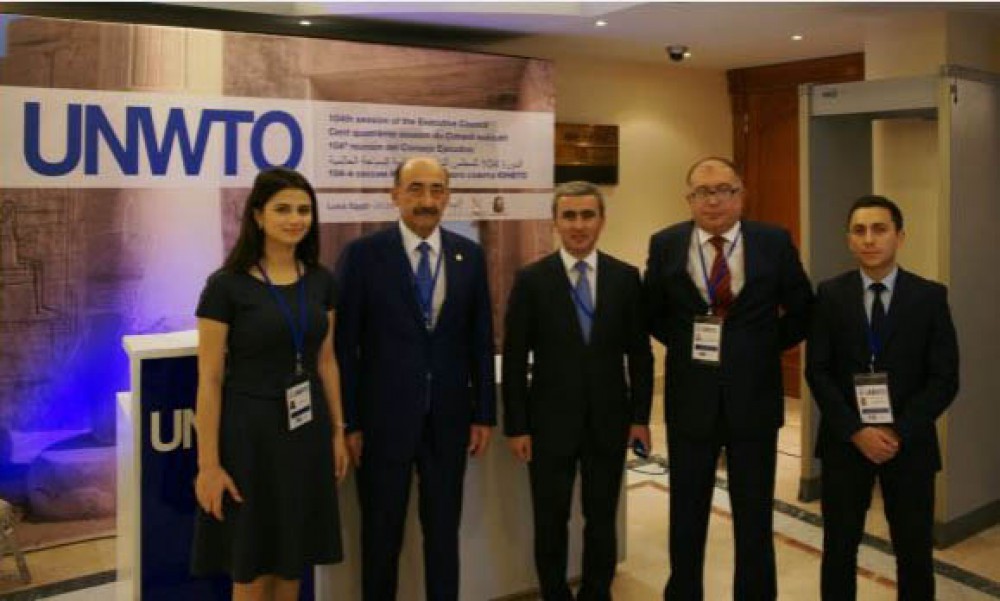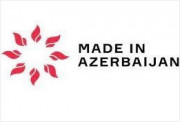Interview by Foreign Minister Elmar Mammadyarov to Middle East News Agency (MENA) of Egypt on October 31, 2016 (full text)
- Would you please shed light on bilateral relations between Egypt and Azerbaijan? How do you see the level of cooperation between both countries?
Azerbaijan and Egypt established bilateral relations 25 years ago after the restoration of independence of Azerbaijan. Since then our countries are enjoying good relations based on the mutual respect and understanding.
Based on the history both countries also have religious, cultural, traditional and social links through the ancient Silk Road.
In 1993 the Embassy of Egypt was opened in Baku. Azerbaijan’s first ever Embassy in the African continent was also established in Egypt in 1994. Diplomatic presence in both capitals has given a further impetus to raise the content and scope of our relations.
Political relations, regular dialogue and exchange of visits play a pivotal role in further cementing friendly relations between our countries.
Currently, the cooperation between the two countries extends to almost every sphere ranging from the political, economic, tourism, energy, education, culture and humanitarian spheres.
We are pleased that as potential oil and gas exporting countries SOCAR and EGPC have achieved tangible progress in energy dimension of our cooperation.
However, the bilateral trade between the two countries is far below than our real potential. Both countries are keen to further enhance bilateral economic and commercial relations with special focus on improving transport connections. The two countries have great potential for cooperation in pharmaceutical, tourism, textile-garment, ICT, agriculture and manufacturing sectors. Direct air routes would also contribute to promoting trade, tourism and people-to-people exchanges.
Contacts between the business circles of two countries are also of great importance for fostering commercial and trade relations.
At the governmental level the Joint Inter-Governmental Commission provides the platform to review and streamline all spectrum of our economic-commercial, cultural and humanitarian agenda and define priorities and further actions for concrete implementation. With these goals in mind, we are looking forward to the next meeting of Inter-Governmental Commission, which is expected to be held in November.
With more than 40 signed agreements the legislative base of our relations is substantially wide and it provides the legal framework for consolidating our cooperation.
We also attach particular emphasis on parliamentary dimensions of our relations. Parliamentary friendship groups make their own tangible contributions to carry our agenda of comprehensive cooperation forward.
As part of our humanitarian agenda, student exchanges and cultural projects have to be especially highlighted. We are glad that academic and student exchange, including the visit of cultural teams are taking place on a continuous basis.
I remain more than reassured that our mutually beneficial cooperation will continue to grow for the benefit of our countries and peoples through our joint efforts. Our relations in the bilateral and multilateral areas, particularly our cooperation in the energy field will be on the agenda during my visit to Egypt.
- How do you see the multilateral dimension of Azerbaijan’s relations with Egypt and Egypt’s efforts as non-permanent member of the United Nations Security Council?
Azerbaijan and Egypt share the similar position on the fundamental issues of the international agenda. We are also in the firm view that the norms and principles of international law, the Charter of the United Nations should be the basis in addressing the international problems. Proceeding from this understanding and complementing our goodwill bilateral relations Azerbaijan and Egypt have forged profound cooperation within the international organizations as well.
In this context, Azerbaijan has supported the nomination of Egypt for the non-permanent seat of the United Nations. We commend the efforts of Egypt to put more emphasis on the problems of Islamic Ummah as a member of UNSC. Azerbaijan has also witnessed support of 155 UN Member States, including Egypt in running for UNSC non-permanent seat in 2012-2013. During its UNSC non-permanent membership Azerbaijan, among other things, initiated the first ever meeting between the UNSC and Organization of Islamic Cooperation on strengthening the partnership synergy between the UN and OIC. It is widely shared view that continuation of this process could further enhance institutional understanding and dialogue between the two institutions and Member States alike.
Along with the OIC, Azerbaijan’s membership to the Non-Aligned Movement and Observer State status at the League of Arab States and African Union, as well as the Mediterranean Partner for Cooperation status of Egypt with OSCE gave us additional platforms for exchange of views and practical collaboration with Egypt. In anticipation of hosting XVIII Summit of NAM in 2019 and chairing this body in 2019-2022, we will seek to have more consultation and cooperation with Egypt, who is one of founding states of NAM.
- What is Baku stance towards situation in Syria and what could be done to halt the conflict in this country?
Having faced with the problem of one million refugees and IDPs in the early years of its independence as a result of notorious ethnic cleansing conducted by Armenia in the occupied territories of Azerbaijan, we fully understand and share the concerns of the international community vis-à-vis the humanitarian catastrophy unfolding in Syria. Azerbaijan by virtue of its capabilities tries to contribute to the humanitarian aid efforts to alleviate the situation of Syrian refugees via the international institutions. We have repeatedly stated that as the first step cease fire and halting of hostilities should be ensured to ease the brunt of humanitarian crises mainly affecting children, women and elders. Afterwards, inclusive political process has to be started to find political solution of the crises according to the will of all Syrian people. The territorial integrity and political unity of Syria has to be guaranteed and safeguarded.
- How Azerbaijan sees the efforts of international community to fight against terrorism and growing risks of Islamaphobia?
The need to strengthen international cooperation geared towards eradicating the menace of terrorism remains strong. It is imperative to take all necessary measures to effectively confront the threats and challenges posed by terrorism, as well as to address its root causes, which include but are not limited to prolonged armed conflicts, illiteracy and social exclusion. Only our joint and concerted efforts coupled with our solidarity can suppress and prevent these inhuman acts which continue to claim the lives of innocent people. Azerbaijan strongly and unequivocally condemns terrorism in all its forms and manifestations, committed by whomever, wherever and for whatever purposes, as one of the most serious threats to international peace and security.
We are seriously concerned also with some unfortunate developments to link the noble religion of Islam with the elements of terrorism. It is completely unacceptable. To the deepest regret, by ignoring innovations and positive influences brought by Islam, international community remains incapable in properly and effectively addressing Islamophobia. We should spare no effort to prevent the increase in frequency and notoriety of this unacceptable trend. We need to further consolidate our efforts within the UN, OIC and other international platforms to prevent this danger.
- Could you please update us on Azerbaijan’s policy to contribute to dialogue of civilizations? Can you also talk about the upcoming Islamic Games that Azerbaijan will host?
I am proud to state that as a country which believes that peace and security is achievable through education, science, culture and dialogue, Azerbaijan has transformed into the hub of events fostering dialogue of cultures and civilizations such as 7th Global Forum of the United Nations Alliance of Civilizations, World Forum on Intercultural Dialogue. Last month we hosted V Baku International Humanitarian Forum which included panels on a wide range of global issues in the interest of all humanity with the participation of renowned guests, among which were Nobel Prize Laureates. Renowned Egyptian scientist and Nobel Prize Laureate in Chemistry Ahmed Zewail also regularly attended this platform and shared his wisdom. We have also saddened by the unfortunate news on his death.
As a country which has always been at the forefront endeavoring to foster Islamic solidarity Azerbaijan is honored to host the 4th Islamic Solidarity Games in Baku next year. Following the First European Games which Azerbaijan hosted in 2015, we strongly believe that Islamic Solidarity Games will also serve for raising solidarity, peace dialogue and understanding.
- Could you please also elaborate on the current status of negotiations towards the resolution of Armenia-Azerbaijan conflict?
Armenia continues to occupy the territories of Azerbaijan, including the Nagorno-Karabakh region and seven adjacent districts, in flagrant violation of international law and resolutions 822, 853, 874 and 884 adopted in 1993 by the United Nations Security Council. As a direct impact of massive displacement of people from their places of origin, close to one million refugees and IDPs continue to be deprived of their basic human rights and fundamental freedoms.
The Republic of Azerbaijan has made it clear on numerous occasions that the unlawful presence of the armed forces of Armenia in the occupied territories of Azerbaijan is the major destabilizing factor with the potential of escalation at any time with unpredictable consequences and the main cause of tensions and incidents in the conflict zone.
Instead of engaging in negotiations in good faith, Armenia demonstratively disrupts any attempt to settle the conflict by peaceful means. In total disregard of the demands of the UN Security Council and in flagrant violation of international law, Armenia refuses to withdraw its troops from Azerbaijan, prevents the hundreds of thousands of Azerbaijani forcibly displaced persons from returning to their homes, and tries to further consolidate the status quo. OSCE Minsk Group Co-chairs- United States, Russia and France, at the level of their presidents have repeatedly stated that the status-quo is unacceptable and unsustainable.
Moreover, it frequently resorts to armed provocations trying to divert attention from the core, substantive issues of the peace process to technical aspects of the ceasefire. Most recently, in early April this year Armenia conducted large-scale attacks against the civilian population of Azerbaijan. It subjected the densely populated areas of Azerbaijan, including schools, hospitals, and places of worship, to intensive fire with heavy artillery and large-caliber weapons.
With all these, Armenia continues to challenge and tries to undermine the efforts of the international community, including the Presidents of the OSCE MG Co-Chairing countries, aimed at reaching a breakthrough at the peace talks and getting Armenia’s troops out of sovereign lands of Azerbaijan.
The sooner Armenia reconciles with this reality and withdraws its armed forces from the occupied territories of Azerbaijan, the earlier the conflict will be resolved, and Armenia and its population will benefit from the prospects of cooperation and economic development.
We are thankful to the international community, including Egypt for the firm position in supporting the territorial integrity and sovereignty of Azerbaijan and the settlement of the conflict based on these principles according to the UN Security Council resolutions through the negotiations.

